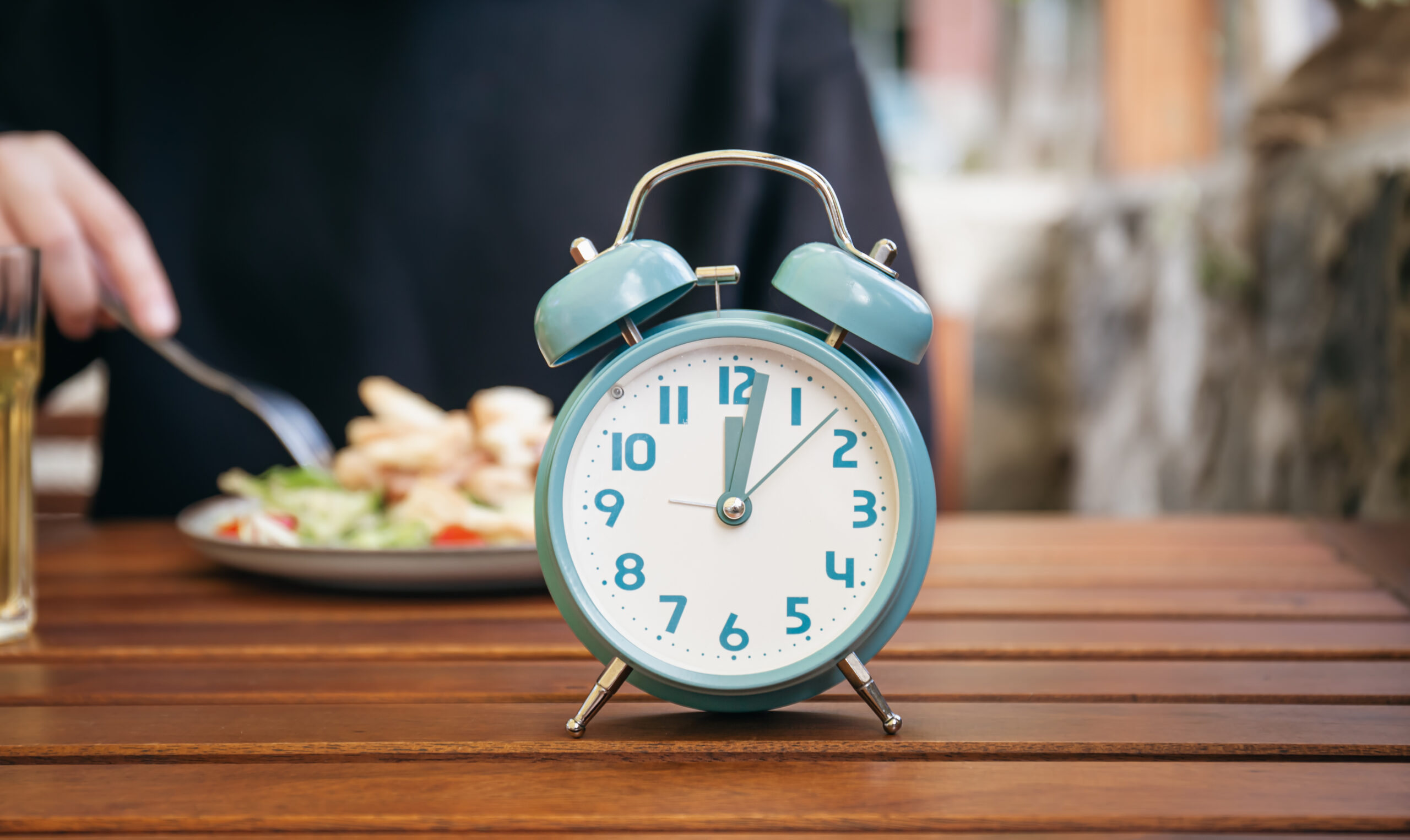Did you ever notice how you feel sluggish after a late dinner or too-early breakfast? The timing of your meal matters more than many people realize. What you eat is important—but when you eat can shape digestion, energy, and long-term health.
Let’s explore the “when” of meals in a clear, friendly way, with practical tips you can try right away.
Table of Contents
Why Meal Timing Impacts Your Health
Eating isn’t just fuel — your body runs on internal clocks. Aligning meals with those rhythms helps your metabolism, hormones, and organs sync up.
- Circadian rhythm link: Research in chrononutrition shows that eating late or erratically can disrupt metabolism.
- Meal frequency and patterns: Studies suggest that how many meals you eat, and how far apart, influences weight, blood sugar, and disease risk.
- Avoid late-night eating: Night eating tends to interfere with fat burning and glucose control.
So a few simple habits—consistent eating times, avoiding food too late—can support your health more than you might think.

Best Meal Timing Practices
Here are some practical, evidence-aligned guidelines you can use.
Front-load your calories earlier in the day
Keep your eating window reasonable
Rather than eating all day, limiting the window (for example, 10–12 hours) often gives your body a break to repair and reset.
Don’t eat too close to bedtime
Give your body 2–3 hours between your last meal and sleep. That gap helps digestion and reduces acid reflux or metabolic stress.
Maintain consistent meal timing
Also Read : Best Cooking Oil
How Much and How Often to Eat
Timing isn’t enough; frequency and portions also matter.
- 3 main meals + 1 snack is common for many — it gives balance without overdoing it.
- Some trials show eating more frequently (≥6 times) may associate with higher disease risk, while too few eating occasions also has downsides.
- Meal size matters: Larger meals earlier, smaller later.
- If you try time-restricted eating (TRE), aim for consistency and gradual adjustment.
Also Read : Joint Pain Hack
What Happens When You Mess Up the Timing
It’s more common than you think to slip. But here’s how your body reacts — and how to recover:
- Energy crashes & cravings: Long gaps between meals may spike hunger and cause overeating.
- Blood sugar swings: Erratic meal times disrupt glucose balance and insulin response.
- Poor sleep & digestion: Late-night eating often worsens sleep quality and digestion
- Metabolic stress: Over time, misaligned timing can promote fat storage, insulin resistance, and cardiometabolic issues.

Also Read : Walk More
Adjusting Meal Timing to Fit Your Life
You’re not a robot, and neither is real life. Here’s how to adapt:
- If you work odd hours or shifts, anchor at least one meal in stable timing.
- Use anchor meals (breakfast or lunch) to keep your rhythm steady.
- Even if your dinner is late, avoid heavy food too close to sleep.
- Use gradual shifts — move your eating times 15 minutes earlier each week until you land where you want.
Also Read : 11 Healthy Fruits
Real-Life Tips for Better Eating Rhythm
Perfect timing isn’t about the clock—it’s about balance. Try these small tweaks:
- Keep a light snack handy when meals get delayed—like nuts, yogurt, or fruit—to prevent overeating later.
- Hydrate well throughout the day; sometimes thirst feels like hunger.
- If you’re traveling or working shifts, stick to consistent eating gaps even if hours shift.
- Pay attention to your hunger cues—your body gives early signs before energy drops.
- Keep caffeine earlier in the day; late caffeine can suppress natural hunger signals and delay sleep.
A few mindful tweaks like these help you maintain balance even when your schedule changes.
Also Read : Raisins Benefits
Also Read : Sugar-Free Life
Sample Meal Timing Patterns
Here are a few realistic patterns you can try. Pick one that fits you, then tweak:
| Pattern | Description | Notes |
|---|---|---|
| Early & Balanced | Breakfast ~7 am, Lunch ~12–1 pm, Dinner ~6 pm | Front-loads energy, aligns with circadian rhythm |
| Time-Restricted (10–12 h window) | First meal ~8 am, last ~7–8 pm | Gives overnight fasting time |
| Moderate | 3 meals spaced ~4–5 hours | Works when consistent, even if schedule shifts |
Choose the pattern that fits your routine, then protect its consistency.
Also Read : 10 Healthy Dry Fruits
How Eating Times Affect Focus & Productivity
- Eating breakfast earlier improves concentration and alertness.
- Avoid heavy late dinners if you work early shifts — prevents sluggish mornings.
- Time-restricted eating can help maintain energy levels during work or study periods.
Also Read : 22 Body Heat Hacks
Meal Timing & Health Benefits You Can Expect
When you follow good timing habits, here’s what may improve:
- Better weight management & fat loss (modest effects)
- Improved blood sugar control, insulin sensitivity
- Enhanced lipid profiles, heart health support
- More stable energy, fewer spikes & crashes
- Better digestive health, less nighttime reflux
- Improved sleep quality when dinner is early

Also Read : Scrolling Overload
Common Questions (FAQs)
Is there a single “best time” everyone should eat a meal?
No — the ideal time depends on your schedule, sleep, and daily rhythm. What matters more is consistency and aligning with your internal clock.
Can I skip breakfast safely?
You can, but skipping may mess with metabolism if it becomes habitual. Many studies still support having morning nourishment.
Does late dinner always lead to weight gain?
Not always, but late meals especially those heavy in carbs and fats tend to impair metabolism and lead to poorer outcomes.
How quickly will I notice benefits?
Also Read : How to Take Care of Your Parents
Final Takeaway for Everyday Balance
It’s not just what or when you eat—it’s how your habits fit your lifestyle.
When you listen to your body and maintain a steady rhythm, digestion improves naturally.
Whether you eat three meals or practice time-restricted eating, consistency always wins over perfection.
If you ever miss your ideal timing, don’t stress. Just return to your pattern the next day—your body adjusts fast when you stay regular most of the time.
Think of this as gentle nutrition alignment, not strict scheduling.
Also Read : Detox Your Body and Mind Today
Closing Thoughts
You’ve seen why when you take a meal can change how your body feels, digests, and ages. This isn’t about rigid rules — it’s about gentle alignment with your internal clock. Try picking one habit: morning consistency, earlier dinner, or a fixed eating window. Stay the course for a few weeks. Notice what feels better — more energy, smoother digestion, steadier mood. Your body will give you the signs.
Also Read : Spice Secrets








